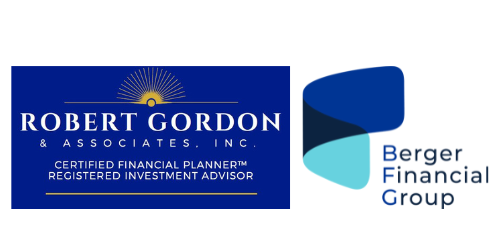Retirees: Control This and You'll Pay Less Tax
Submitted by Robert Gordon & Associates, Inc on May 2nd, 2019When most people think of retirement, fears about financial challenges frequently come up. With so many people not having any retirement savings at all, benefits like Social Security often make up most or all of the income that retirees get.
Yet even those who have managed to set aside a reasonable nest egg often find that the money they've saved doesn't go as far as they'd hoped. Although plenty of expenses can be more costly than anticipated, the most surprising thing for many retirees is how much they end up having to pay in taxes. Much of that ends up being due to a single factor -- and fortunately, it's one that you have at least some control over.
How retirement account distributions affect your taxes
Throughout your career, the most important thing you had to worry about when it came to retirement savings was figuring out how to set aside as much money as you could afford. By using a mix of different types of accounts, such as 401(k)s and IRAs, you could take advantage of various tax breaks while putting yourself in position to invest in your future.
Yet when it comes time to retire, the focus changes to how best to use the money that you've accumulated in your retirement accounts. Many of the more popular savings options that give you an upfront tax deduction when you make contributions during your career can end up being more problematic from a tax perspective in retirement. That's because typically, you'll have to pay taxes on the money you withdraw from those traditional 401(k) and IRA accounts, regardless of whether the money represents your initial contributions or the income and gains that your investments have generated inside your retirement accounts.
Even worse, withdrawals from these types of retirement accounts can have an impact on how other types of income get taxed. The most common situation involves Social Security, because if your total income exceeds certain threshold amounts -- including amounts you withdraw from traditional retirement accounts -- then it can trigger the taxation of a portion of what you receive in Social Security benefits. With the potential of having to treat up to 85% of what you get from Social Security as taxable income, each dollar you take out of a traditional 401(k) or IRA can have a domino effect on the rest of your taxes.
By contrast, a few people successfully use other types of retirement accounts that have different tax consequences. In particular, Roth IRAs give you the ability to make tax-free withdrawals in retirement. Using them as a source of retirement cash lets you avoid worrying about tax consequences, but the total amount of money in Roth IRAs is just a small fraction of what you'll find in traditional retirement accounts.
Getting the right mix
The best approach toward tax planning in retirement involves preparation beforehand. In particular, doing the following things in advance can help immensely once you retire:
- Have a mix of traditional and Roth retirement accounts. If you've always used traditional retirement accounts to get upfront deductions, then consider taking the one-time tax hit involved with a Roth conversion in order to gain the flexibility of having tax-free resources available. The sooner you do so, the longer your account will generate income and gains, increasing the amount you'll have available to withdraw without paying tax.
- Consider having savings outside retirement accounts entirely. Many people think you have to use tax-favored retirement accounts to save, but if you're a long-term investor in stocks, you can get an equally important tax benefit just by holding onto your shares rather than selling them and generating taxable capital gains. When you sell investments in retirement, you'll have to include just the gains in your taxable income rather than the entire proceeds of the sale.
- Be smart about tax brackets. Sometimes it can make sense to pay tax sooner rather than later if you can do so at a lower rate now than you'd pay in the future. That can guide decisions about investment moves, retirement account withdrawals, and a host of other considerations with respect to your taxes.
IRAs and 401(k)s can have a huge difference in your success in saving for retirement. If you're aware of their tax consequences, then you'll be better able to take steps to control adverse tax impacts and get yourself into the best possible position to keep as much of your hard-earned savings as possible for your golden years.

